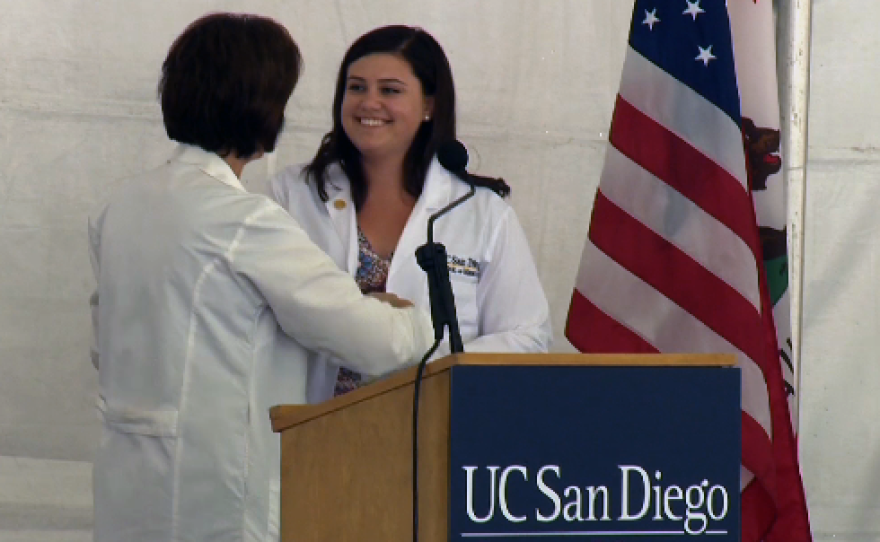Kiana Choo Loy has long known she wanted to be a doctor.
"My grandma was a nurse, so she inspired me to go to the medical field," Choo Loy said. "So going into college, I knew I wanted to go to medical school."
But Choo Loy struggled her first two years of college, so when she graduated she didn’t have the grade point average to get into medical school.
"When I applied and didn’t get in, I kind of felt like giving up," she said.
Instead, she applied to the UC San Diego Post Baccalaureate Premedical Program. The year-long program helped her and 27 other students who want to be doctors boost their academic records to get into medical school.
"You may come in with a lower GPA, say 3.0 to 3.5, and you want an opportunity to show a medical school that you can do strong work and so you would come out of the program with a 4.0, 3.9, maybe 3.8 that shows a medical school that you are on an upwards trajectory," said Grace Miller, the director of the Healthcare and Behavioral Sciences department at UC San Diego Extension, who runs the post baccalaureate program.
The program costs $30,000 and does not qualify for federal student loans. It does offer some scholarships, and students can take out private student loans.
Dr. Carolyn Kelly, an associate dean at the UC San Diego School of Medicine, said the post baccalaureate program builds a community among the students who go through it together, and that carries into medical school.
"They learn a lot from their courses about how to work together in teams to learn new information, and that is a growing trend in medical school curricula," she said.
Kelly said because this is the program's first year, it's too early to tell whether it will adequately prepare students for medical school. But she said UC San Diego's medical school has no doubts Choo Loy and the other six students it accepted out of the post baccalaureate program will succeed.
"We understand the rigor of the coursework that they have gone through, and so if they have excelled in the rigor of that coursework then we know that they're academically ready," she said.
Miller said half of the students from the program are considered socioeconomically disadvantaged. The aim is to get students into medical school who want to work in underserved communities.
That’s true of Choo Loy, who’s originally from Hawaii and said the native population there doesn’t get adequate medical care.
"As a native Hawaiian myself, I feel the responsibility to go back home and bring back what I learned and serve the people there," she said.






